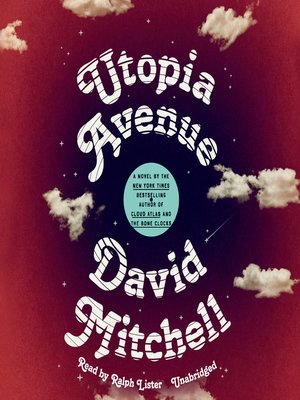
/https://www.thespec.com/content/dam/thestar/entertainment/books/2020/07/09/bestselling-author-on-letting-new-novels-fictional-rockers-rub-shoulders-with-david-bowie-and-jimi-hendrix/utopia_avenue.jpg)
Wells, Aldous Huxley and Margaret Atwood - Ecological and feminist texts by Ernest Callenbach, Ursula Le Guin and Marge Piercy - Twenty-first century utopianism This is an essential study for scholars and students of utopian literature. Topics covered include: - Early political and philosophical authors, such as Plato and Thomas More - Literary works, from Jonathan Swift's Gulliver's Travels to George Orwell's Nineteen Eighty-Four - Speculative-fiction writers such as H.G. Utopia and Its Discontents concludes by arguing against the idea that the utopian has been eclipsed by the dystopian in contemporary culture. In this original and insightful study, Sebastian Mitchell demonstrates how literary utopias are often as much about the past as they are about the present and the future. Each chapter offers close readings of key utopian and anti-utopian texts to demonstrate how they construct, challenge and explore the ideas and forms of earlier utopian writings and the social and political ideals of their own periods. The contributors are Dipesh Chakrabarty, Igal Halfin, Fredric Jameson, John Krige, Timothy Mitchell, Aditya Nigam, David Pinder, Marci Shore, Jennifer Wenzel, and Luise White.Utopia and Its Discontents traces literary representations of ideal communities from Plato to the 21st century. The essays look at such issues as imaginary utopian perspectives leading to the 1856-57 Xhosa Cattle Killing in South Africa, the functioning racist utopia behind the Rhodesian independence movement, the utopia of the peaceful atom and its global dissemination in the mid-1950s, the possibilities for an everyday utopia in modern cities, and how the Stalinist purges of the 1930s served as an extension of the utopian/dystopian relationship. From colonial and postcolonial Africa to pre-Marxist and Stalinist Eastern Europe, from the social life of fossil fuels to dreams of nuclear power, and from everyday politics in contemporary India to imagined architectures of postwar Britain, this interdisciplinary collection provides new understandings of the utopian/dystopian experience. Rather than locate utopias in grandiose programs of future totality, the book treats these concepts as historically grounded categories and examines how individuals and groups throughout time have interpreted utopian visions in their daily present, with an eye toward the future. Utopia/Dystopia offers a fresh approach to these ideas.

Utopias have traditionally signified the ideal future: large-scale social, political, ethical, and religious spaces that have yet to be realized.

The concepts of utopia and dystopia have received much historical attention.


 0 kommentar(er)
0 kommentar(er)
